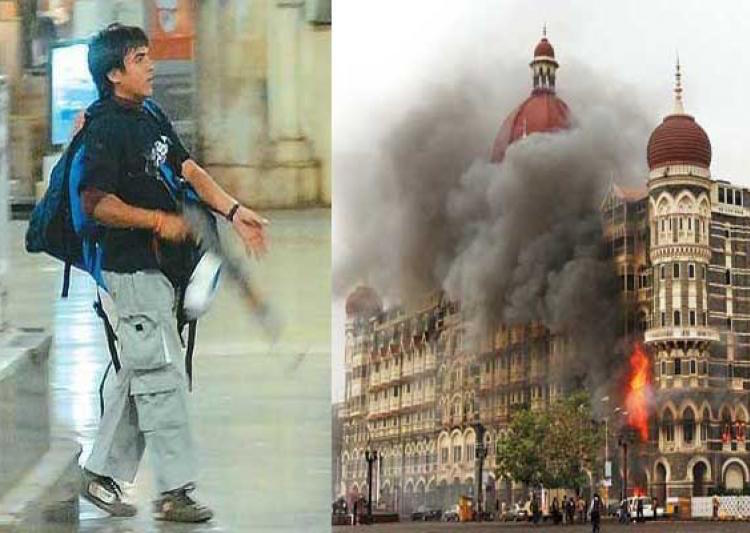
Viewpoint by Jonathan Power
LUND, Sweden (IDN-INPS) – In the middle of September Pakistani militants moved across the “line of control” that separates Pakistan-controlled Kashmir from the Indian-controlled part. The two countries have been at loggerheads about the title to this gorgeously beautiful state, now bereft of tourism and much income, since independence.
In recent years guerrilla activity has died away and most observers thought that the Pakistani army was seriously clamping down on its own sponsored guerrillas. The indications were that the government truly wanted rapprochement with India. And India too with Pakistan.
However, not everybody in India thinks so positively. Professor Brahma Chellaney noted in the Japan Times recently, “India’s response to Pakistan’s military strategy to inflict deaths by a thousand cuts through terrorist proxies was survival by a thousand bandages”.
This time India did not take it lying down. It said that Indian special forces made multiple strikes on terrorist launch pads. (Pakistan said there had only been cross border firing.)
Surprisingly, India has made no move to designate Pakistan as a state sponsor of terrorism or to declare bounties on the heads of prominent UN-designated terrorists who still operate openly in Pakistan – not the same organisation who killed 150 school children last year but other similar movements.
India is conducting, to the ire of Chellaney, only “a silent war”. He goes further and says that “if in a year’s time (when things have hopefully cooled off) India returns to “peace talks” with Pakistan it will be crystal clear that India’s biggest enemy is India”.
Strong words and I profoundly disagree with him.
At last, very belatedly, the government of Prime Minister Nawaz Sharif is upending its old policy of turning a blind eye to the militants. It has to overcome a degree of resistance from the army whose ex ISIS (secret service) retired operatives sometimes give the Kashmir militants a helping hand. That is not easy.
The fact is the massacre of 150 school children late in 2014 was the final straw. There have been too many cases when the militants have turned on their own people: trying to kill General Pervez Musharraf when he was president; murdering Benazir Bhutto, the former prime minister, during an election campaign; killing health workers who were giving anti-polio drops; murdering Salmaan Taseer, governor of the Punjab, who campaigned against the blasphemy law; trying to kill Malala Yousafzal, the campaigner for girls’ education. There has also been the murderous anti-Sh’ia campaign.
The government, its army and even the ISI, have been taking the militants head on, not least the home-grown Tehrik e Taliban Pakistan (TTP).
It would help greatly if it could pick up where Musharraf left off and seek, with the same generous concessions he made, a peace agreement with India. It is Pakistan’s ultra-antagonistic attitude towards India, more than anything else, that has made the conflict with India – which has led to four wars, one of which might have become nuclear – the central plank in the country’s foreign and military policies, pushing other priorities aside.
This would mean, among other issues, totally stopping the militant fighters in Kashmir who confront India. These are affiliated with the Islamist terrorists in the heartland of Pakistan and with the extremists focused on Afghanistan in their redoubt on the Afghan-Pakistan border in semi-governable North Waziristan.
There have long been question marks over how the army defines its enemies. One litmus test must be its relationship to Punjabi-based militant groups such as Lashkar e Taiba, which are accused of carrying out the horrific attacks on Mumbai in 2008. Are they still free to operate in Pakistan without interference because the government is obsessed with the supposed help they give by attacking Indian targets?
To be fair to Pakistan from 2004 to 2009, in response to intensifying TPP violence, the army initiated a series of cease-fire agreements with the TPP. But they were unsuccessful.
Since then Islamic extremists of all sorts have gathered under the umbrella of the Pakistan Taliban. Many even want to defeat the army, topple the government and impose a caliphate.
The government says it is committed to a zero-tolerance of terrorism. It has rallied all the main political parties to its side.
It is well overdue. One government after another has ignored the warning signs of totally counterproductive policies. This one now has to reign in the ISI old guard and detain ex and retired members of the organization that give advice to the militants. It has to make sure the terrorist groups and the civilian organisations behind them are given no latitude
Many of us thought it had already done so. Clearly the latest events show that it has not. Pakistan must stop shooting itself in the foot. And India and Pakistan must re-start negotiations about a permanent peace. At the time of Musharaff there was a good chance of making peace. India refused to clinch the deal. [IDN-INPS – 18 October 2016]
Note: Jonathan Power syndicates his opinion articles. He forwarded this and his previous Viewpoints for publication in IDN-INPS. Copyright: Jonathan Power
Photo: A special “Kasab class” is part of Pakistan-based terror group Lashkar-e-Taiba (LeT)’s training module for its new recruits during which they are told about the mistakes committed by Ajmal Kasab during the deadly Mumbai terror attack. Source: IndiaTVNews
IDN is flagship of the International Press Syndicate.

